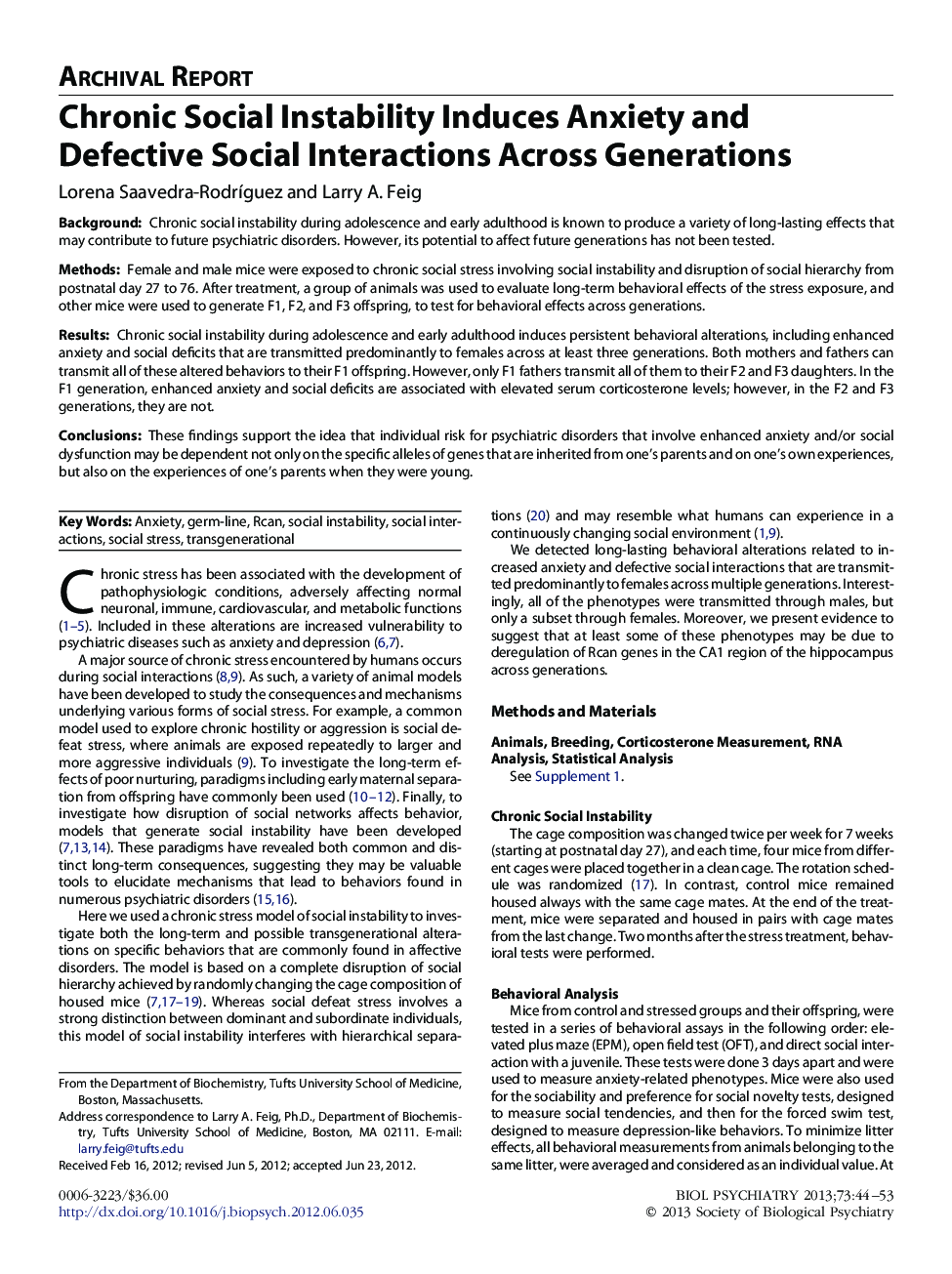| Article ID | Journal | Published Year | Pages | File Type |
|---|---|---|---|---|
| 4177989 | Biological Psychiatry | 2013 | 10 Pages |
BackgroundChronic social instability during adolescence and early adulthood is known to produce a variety of long-lasting effects that may contribute to future psychiatric disorders. However, its potential to affect future generations has not been tested.MethodsFemale and male mice were exposed to chronic social stress involving social instability and disruption of social hierarchy from postnatal day 27 to 76. After treatment, a group of animals was used to evaluate long-term behavioral effects of the stress exposure, and other mice were used to generate F1, F2, and F3 offspring, to test for behavioral effects across generations.ResultsChronic social instability during adolescence and early adulthood induces persistent behavioral alterations, including enhanced anxiety and social deficits that are transmitted predominantly to females across at least three generations. Both mothers and fathers can transmit all of these altered behaviors to their F1 offspring. However, only F1 fathers transmit all of them to their F2 and F3 daughters. In the F1 generation, enhanced anxiety and social deficits are associated with elevated serum corticosterone levels; however, in the F2 and F3 generations, they are not.ConclusionsThese findings support the idea that individual risk for psychiatric disorders that involve enhanced anxiety and/or social dysfunction may be dependent not only on the specific alleles of genes that are inherited from one's parents and on one's own experiences, but also on the experiences of one's parents when they were young.
